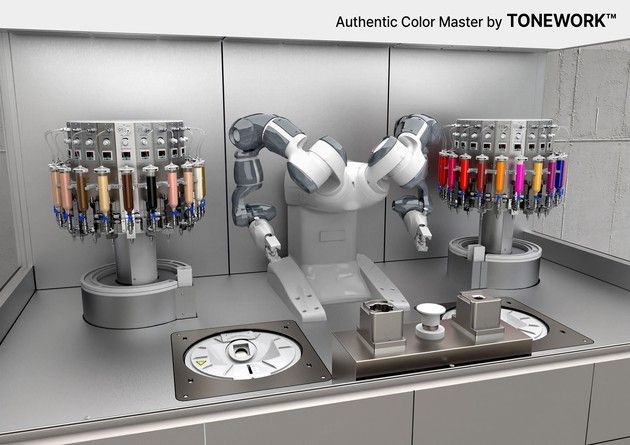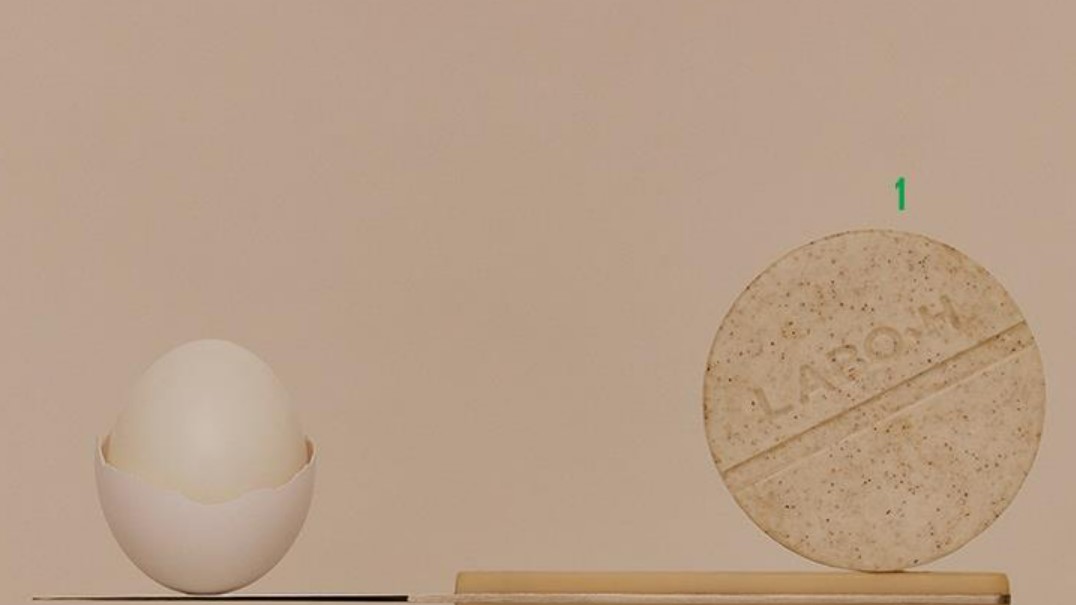South Korea is famous for its cosmetic industry, home to many internationally known brands, including Amorepacific, LG Household & Health Care, etc. Due to the rise in demand for K-Beauty products in the United States and Asia, South Korea became the 5th largest exporter of cosmetic products at $8.5 billion in 2021.1
K-Beauty products are known for innovation, gentle ingredients, and pleasing packaging. Knowing the latest popular and innovative cosmetics can inspire overseas cosmetic enterprises to develop new products and better arrange their business plans. This article introduces three creative movements in the Korean cosmetic industry, including the refilling station, AI robot for making custom cosmetics, and package-free cosmetics.
1. Refilling the empty bottles
Cosmetic containers are difficult to recycle because they’re usually designed to protect the contents from sunlight and prevent cosmetic deterioration by adding colorants or other components. Many containers are discarded, which leads to environmental problems and increasing costs for dealing with discarded containers for enterprises.
To protect the environment and reuse cosmetic containers, Korean cosmetic enterprises launched refilling stations for filling the used cosmetic containers with cosmetic contents. Companies such as Amorepacific, LG Life Health, Aromatica, and Ecostore have opened over 80 refilling stations in South Korea. Shampoo, conditioner, body wash, toner, essence, etc., can all be refilled in these stations. It is an eco-friendly way to consume without discarding cosmetic containers.

(Ecostore refilling station, source: Ecostore)
2. AI robot for making custom cosmetics
Amorepacific recently launched TONEWORK, a brand specializing in customized makeup that incorporates AI technology. TONEWORK provides an AI and robot arm-based customized cosmetics solution that uses AI algorithms to precisely measure facial colour and robot arms to manufacture customized foundation, cushion, and lip products.
Take foundation for example, all consumer needs to do is to put a color measurement card on the cheek and look at the camera on the monitor. An AI-based algorithm will then measure the perfect colour for the reporter's skin in six seconds. Based on this, the robot will extract the colour and manufacture the customized foundation. From self-diagnosis of skin colour to production, it takes only 10 minutes. The adoption of AI technology helps raise the productivity of custom cosmetics, making it possible to serve more customers and lower the price of custom cosmetics.

(TONEWORK, source: dailian)
Amorepacific's focus on the custom cosmetics market is due to the high growth potential of this market. In fact, according to the Ministry of Food and Drug Safety(MFDS)2, the global customized cosmetics market is expected to reach 5.42 trillion won (about 4.091 billion dollars) by 2025. As the demand for ultra-personalized cosmetics is growing due to the accelerated integration of the cosmetics industry and IT and the segmentation of individual tastes, the nascent domestic market also has the potential to grow.
3. Package-Free Cosmetics
Package-free or "naked" cosmetics have become a staple among eco-conscious consumers in South Korea. Package-free means zero plastic and zero guilt, which is what zero-waste consumers seek. Before package-free cosmetics, there were limited choices, such as soaps. Now there are many categories of solid cosmetics, including shampoo bars, conditioner bars, and facial oil bars. Another advantage of package-free cosmetics is that they can be used without leftovers, comparing to the difficulty of getting 100% contents used out of a plastic container. The pleasure and satisfaction of totally using a product is another reason why package-free cosmetic is popular among Korean consumers.

(Shampoo bar from Labo-h, Labo-h.source: Elle )
4. Stick-Formed Cosmetics
Korean beauty industry is introducing cosmetics in easy-to-use stick products such as sunblock sticks.
Actually, the demand for stick-formed cosmetics has increased since the beginning of the pandemic, when hygiene has become a topical issue. Most sick formed cosmetics are made in solid formulations, which contain less water than regular cream or serum formulations, making it easier to control microorganisms contamination.
Under hotter weather, people need to reapply the sunblock, which made stick cosmetic a great option for its portability and convenience. The sales of stick sunblocks have increased about four times more than that of creams and sprays accoridng to the G-market (one of the biggest Korean online market) reported on August 9, 2023.

(JM sunblock stick, source: SimplyK)
Cosmetic regulatory environment in South Korea
In South Korea, MFDS take responsibility for cosmetic safety management, law establishment, and distribution inspection. South Korea adopts negative list to regulate the use of ingredients in cosmetics. This means if an ingredient is not listed in the prohibited ingredients list (Annex 1 of Cosmetic Safety Standard3) or is used under the limitation requirements for restricted ingredients list (Annex 2 of Cosmetic Safety Standard3), the ingredient can be used in manufacturing a cosmetic product. As for functional ingredients, enterprises shall undergo a pre-review by MFDS.
To export cosmetics to South Korea, the overseas enterprise needs to establish a "responsible cosmetic distributor" as an importer. The importer will take charge of the cosmetic's quality and safety as well as distribute the products in South Korea. Also, the "responsible cosmetic distributor" should apply for registering "responsible cosmetic distribution business" to MFDS, reporting the product's ingredients and manufacturing methods. MFDS authorized Korea Pharmaceutical Traders Association (KPTA) to review and certify the "entry notice of imported products" submitted by the importer.
Also, on December 25, 2019, the Ministry of Environment (MOE) enacted the Resources Recycling Act4, which banned PVC materials and coloured PET bottles and required enterprises to evaluate the packaging material grade.
ChemLinked provides consulting services about Korean cosmetic compliance. Please email the author if you need assistance with label review, formula review, package recycling evaluation, market entrance consultation, functional ingredient application, etc.
Read More



 We provide full-scale global cosmetic market entry services (including cosmetic registering & filing, regulatory consultation, customized training, market research, branding strategy). Please contact us to discuss how we can help you by
We provide full-scale global cosmetic market entry services (including cosmetic registering & filing, regulatory consultation, customized training, market research, branding strategy). Please contact us to discuss how we can help you by 









